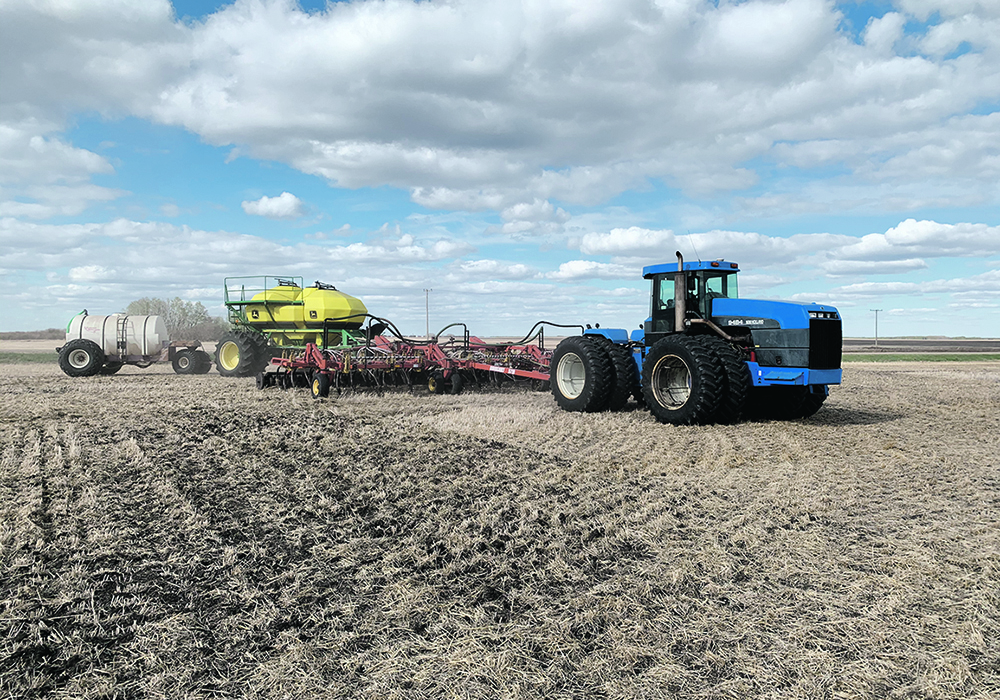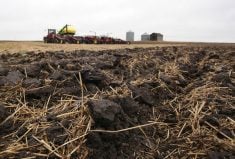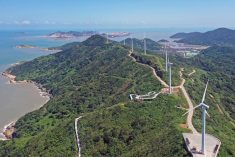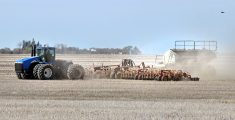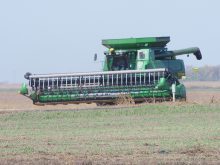Researcher says farming involves removing nutrients from the land and some will inevitably escape into the environment
Permanently eliminating net greenhouse gas emissions from Canadian farming is next to impossible without a radical restricting of agriculture, a senior soil biochemist recently told a livestock sustainability conference.
Only by completely changing how farmers farm can there be a hope for stopping the “leak” of GHGs into the atmosphere.
“I cannot envision a way, I cannot see a way that we can arrive at a durable net zero system by the year 2050,” Henry Janzen, an Agriculture Canada researcher in Lethbridge, told the conference organized by the University of Manitoba’s National Centre for Livestock and the Environment.
Read Also

More factors affecting winter weather
When you combine a weak La Niña, early Siberian snow, and a warm northern Pacific, it’s easy to see why long-range winter forecasting is so complex.
“There will always be some emissions of nitrous oxide and methane. There will always be nitrous oxide and methane leaking from our systems in one way or another.”
The fundamental problem, Janzen said, was that farming is inherently extractive. It is a process of removing nutrients from the land. Some will inevitably escape into the environment.
“Farming is very deliberately extractive,” said Janzen.
“We have started exporting as much carbon as possible.”
Janzen said the idea of “carbon sinks” and “sequestration” are attractive, but only work for a while. Once they have dumped as much carbon as the land can carry, they cease to be effective.
“Things are finite,” he said.
“They may be temporary.”
That’s why the carbon sequestration benefits of no-till farming appear to be topping out, Janzen said. After a couple of decades of removing carbon from the air, they might hit maximum capacity.
Incremental improvements and modifications of current farming won’t be enough if the goal is to get to net-zero by 2050. The entire farming system will need to be revolutionized.
“If we are to progress toward net zero, that path will demand transformative reconfiguration of our farming systems,” said Janzen.
“It will demand a radical revolution of how we farm. Tweaking will not suffice.”
That revolution could include:
- Paying for farmers to not farm certain parts of the land.
“It means a reorientation of our thinking as agricultural scientists from thinking about fields to thinking about entire landscapes, from thinking about maximizing yields to thinking about optional stewardship of all places within the landscape.”
- Embracing perennial crops.
- Rethinking the role of livestock within a production system.
- Solving the “nitrogen enigma” to discover where the missing nitrogen applied to farming ends up.
- Move to “systems thinking” with restorative principles, while customizing optimal practices to specific situations.
- Re-imagining economics so things other than crop and livestock production are valued.
- Better measuring and verifying the results of farming and management practices.
Such an overhaul would require everybody in the country to participate.
“Changing how we farm is a societal undertaking,” said Janzen.
“This must engage all of society.”


